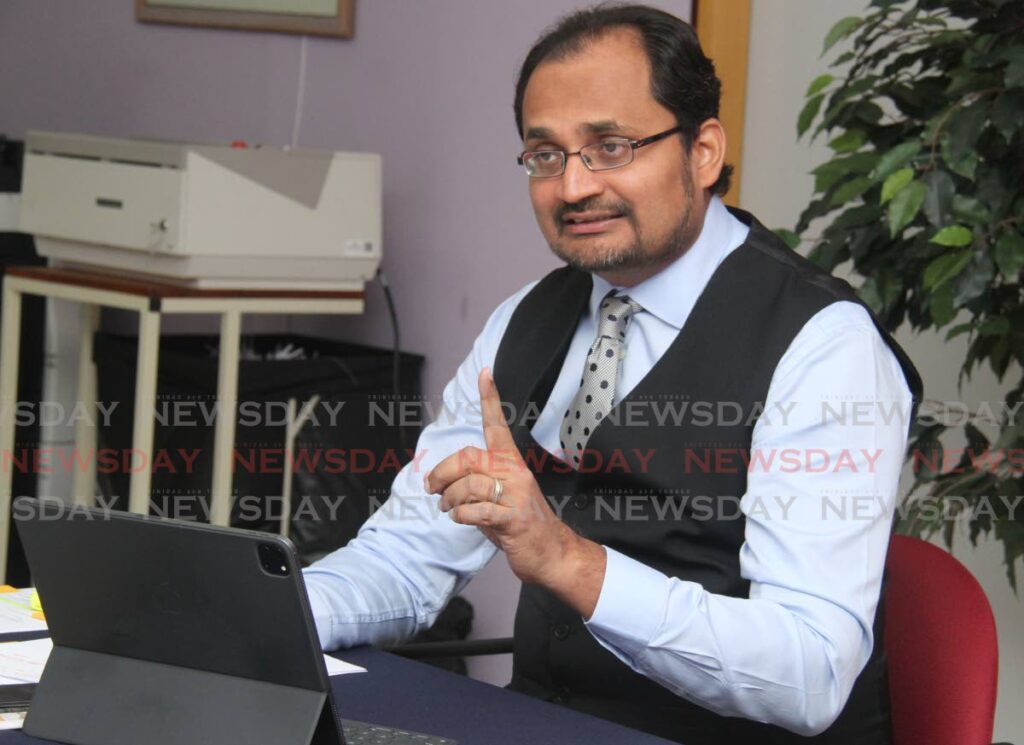All roads lead to crime

DINESH RAMBALLY
THE UNIVERSITY of the West Indies (UWI) hosted a forum last Thursday about the use of private security firms alongside the police in the fight against crime.
Among the speakers were National Security Minister Fitzgerald Hinds, Assistant Commissioner of Police (ACP) Richard Smith, and Carlos Neptune, president of the TT Private Security Association. They were complemented by the research done by Drs Michal Pawinski and Annita Montoute of the Institute of International Relations on the issue.
Among the more useful bits of information shared by Hinds is that there are currently 50,000 private security officers in TT, and hundreds of firms. Compare this to 6,500 members of the TTPS.
Other Caribbean islands have recruited private services in the fight against crime, but, all participants agreed, several issues in TT have made this difficult. These include the industry first of all; the legal framework, second; and the officers themselves, third.
The problematic issues are intuitive and would be apparent to anyone who has lived in Trinidad for any length of time. Security firms are uneven in quality of personnel they recruit, the amount of training they impart, and what they pay and how they treat their employees.
The first step in adding this corps to the fight against crime is a standardisation of training, pre-hiring vetting, and conditions of employment.
So far nothing here is a surprise. It is generally felt that security companies recruit people unable to get employment in the TTPS, which would be the preferred destination because of its security of tenure, well-known protocols, and the perks of being a government employee.
This alone makes the issue of the private security firms supplementing the police problematic – if the candidates could not get into the police service in the first place, why should they be let in to a position of considerable authority through a side door?
Other issues arise, which could be dealt with legislatively – mainly, what is the public’s recourse in dealing with a member of a private firm? Police officers have to identify themselves by name and number if asked. What protocols for non-police officers?
ACP Smith addressed this when he spoke of private security officers being “precepted” – which meant they had powers of arrest and laying charges. Most of the men precepted, he said, were interested only in having the right to carry a firearm.
They were not concerned with the other powers and responsibilities that come with the status.
This issue of status is an important one which none of the panellists adequately addressed. As seen in recent times where police officers have been charged with corruption and crimes, the TTPS is an organisation in disarray. The officers seem at times to be a law unto themselves and their malfeasance is the stuff of local lore.
The question in my mind is what happens if we complement the strength of the police service with 50,000 individuals, armed, and with an inflated sense of their own authority and power, without the proper training to restrain them from a helpless public?
Given the legislative requirements, it seems unlikely that this co-opting of the private security services into the national fight against crime will happen any time soon.
Minister Hinds spoke of a bill to allow this use of private security firms in the fight against crime which did not receive opposition support in the last Parliament. But the government has not brought it to the House in the current parliamentary term.
This is the conundrum in which we as a nation find ourselves, where every proposed solution to a problem seems to lead to a larger problem or another problem.
The issues that lead to crime, as I have noted before, are fundamental, they begin in communities, in homes, and in the absence of religious and civic authorities. It is a problem that needs a multifaceted approach – in the school and community, the Parliament, and inside the TTPS. Each facet of the problem has its own challenges, and to solve it all requires a dedicated task force.
Until we put this level of attention, it seems unlikely that any of these proposed solutions will yield much more than platitudes and good wishes.
DINESH RAMBALLY is the MP for Chaguanas West

Comments
"All roads lead to crime"